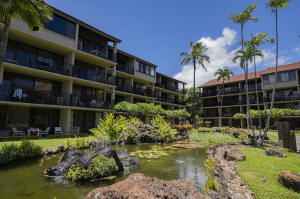Maui mayor's plan to phase out vacation rentals would increase housing
but shrink the economy
[April 01, 2025] By
AUDREY McAVOY
HONOLULU (AP) — An unprecedented proposal from Maui's mayor to phase out
vacation rentals would alleviate a severe housing shortage aggravated by
the 2023 wildfires but would also shrink the economy, University of
Hawaii economists said in a report published Monday.
Mayor Richard Bissen introduced the policy idea last year to boost
Maui's limited supply of long-term housing after the fires wiped out
more than 3,000 housing units in Lahaina.
Trey Gordner, one of the study's authors and a researcher at the
University of Hawaii Economic Research Organization, said there are
always trade-offs associated with decisions of this kind.
“We find that the policy would increase housing affordability somewhat
at the cost of jobs, incomes and tax revenues,” he said a news
conference. Visitor spending is likely to sharply decline, according to
the report.
Bissen said the report was a valuable first step in understanding the
potential economic impact of his proposal. But he said economic models
don't reflect the lived experiences of residents crowded into
multigenerational homes, commuting long distances and leaving Maui
because they can't afford housing.
“Most importantly, they fail to acknowledge the cultural loss we face
when our people are forced to leave—when generations of knowledge,
tradition, and aloha are displaced from the very communities that shaped
them,” Bissen said in a statement.

The Maui County Council's Housing and Land Use Committee may be able to
take up a bill incorporating the mayor's proposal in about 60 days,
depending on the budget review and deliberation schedule, Council Chair
Alice Lee said in a text message.
She said her concern is that the study doesn't address the legal
implications and associated costs of the policy.
“My understanding is that many (short-term rental) owners will elect to
retain their units and not sell or rent their units and use them when
they visit Maui," Lee said. "The Council would like to establish a fair
and equitable solution that works for all parties.”
About one-third of Maui’s visitors use vacation rentals. They tend to
cost less than hotels and are easy to reserve on websites like Airbnb
and Vrbo. Many have workspaces and kitchens, so people can work remotely
and families can prepare their own food.
They have also become a source of tension on Maui, particularly after
the Lahaina wildfire — the deadliest in the U.S. in more than a century
— destroyed so much housing.
The report said the mayor's proposal was unique in scale because the
vacation rentals in question account for 21% of Maui County's housing
supply. In contrast, vacation rental regulations in Los Angeles affected
0.9% of local housing and those in Barcelona affected 2.6%, the report
said.
[to top of second column] |

Papakea Resort stands on June 24, 2024, in Lahaina, Hawaii. (AP
Photo/Mengshin Lin, File)
 The policy would add up to 6,127
vacation rental units to Maui's long-term housing stock, increasing
supply by 13%.
Because only about 600 new housing units are built in the county
each year, this would be equivalent to a decade's worth of new
housing development. Condo prices would drop 20-40%, the study
estimates.
Most of the affected owners would not be Maui residents because 85%
of Maui's apartment-zoned vacation rental owners are from
out-of-state — particularly California and Washington state — as
well as Canada.
Another benefit would be that switching the units to long-term
housing wouldn't require the county to develop additional water
sources, which are scarce on Maui.
At the same time, the study predicted the policy would eliminate
one-quarter of Maui County's visitor accommodations and shrink
visitor spending by 15%. Some 1,900 jobs or 3% of the county's
payroll would disappear.
Gross domestic product would contract by 4% and property taxes would
likely decline by up to $60 million annually.
The report said the county could attain some of the desired housing
boost with less economic disruption if it instead increased taxes on
vacation rentals, taxed empty homes and adopted zoning and
permitting reform.
Capping the number of vacation rental licenses and auctioning them
off would be another approach.
Steven Bond-Smith, an assistant professor at the university and
report co-author, said he wasn't aware of a community that has done
this with vacation rentals but it's a common practice for taxi
medallions and is used to manage fisheries.
Auctioning licenses would push less profitable units out of the
vacation rental market because the cost wouldn't justify the
expense, the report said.
The university conducted the study at the request of the Hawaii
Community Foundation, a nonprofit organization.
All contents © copyright 2025 Associated Press. All rights reserved
 |